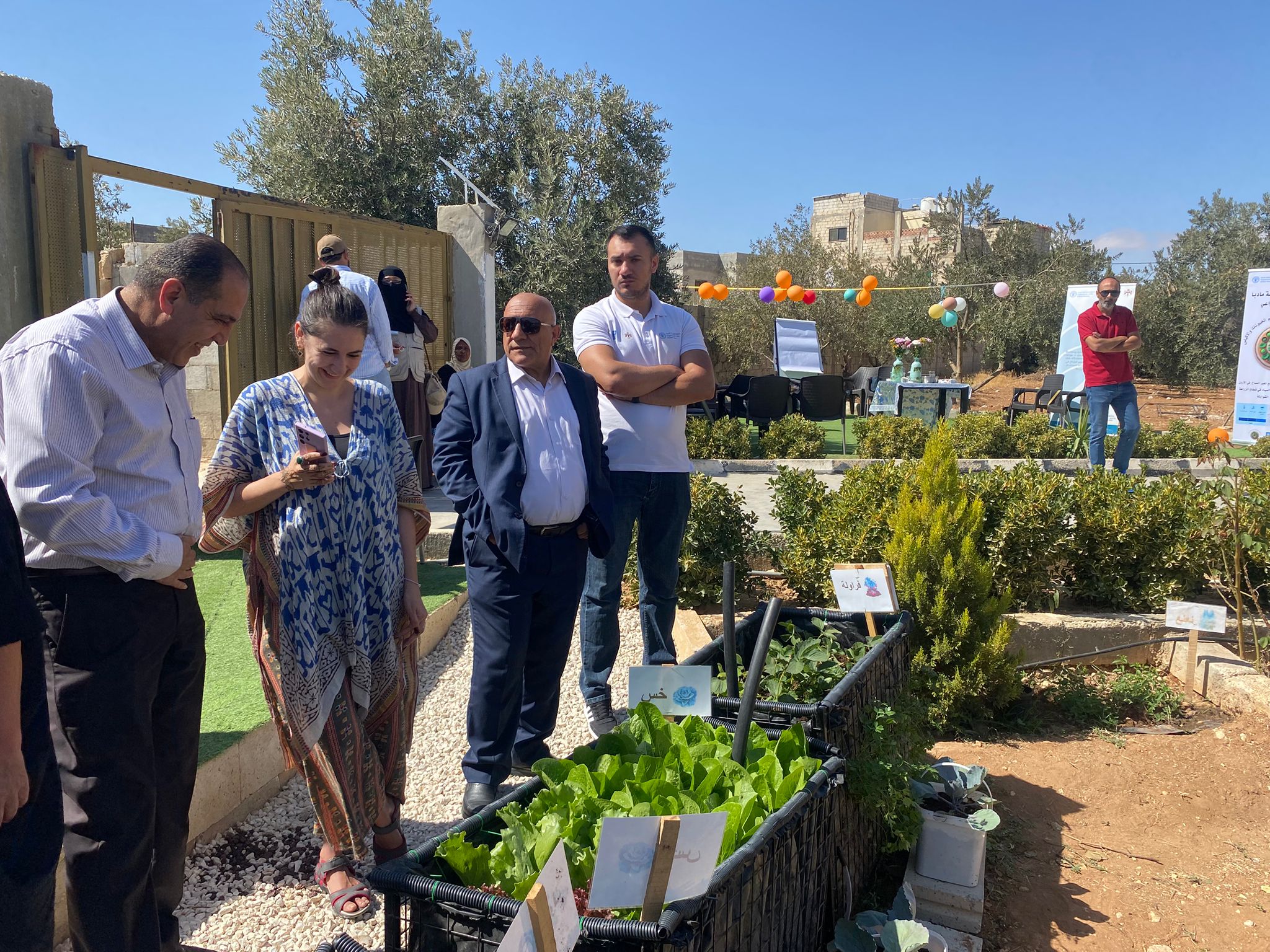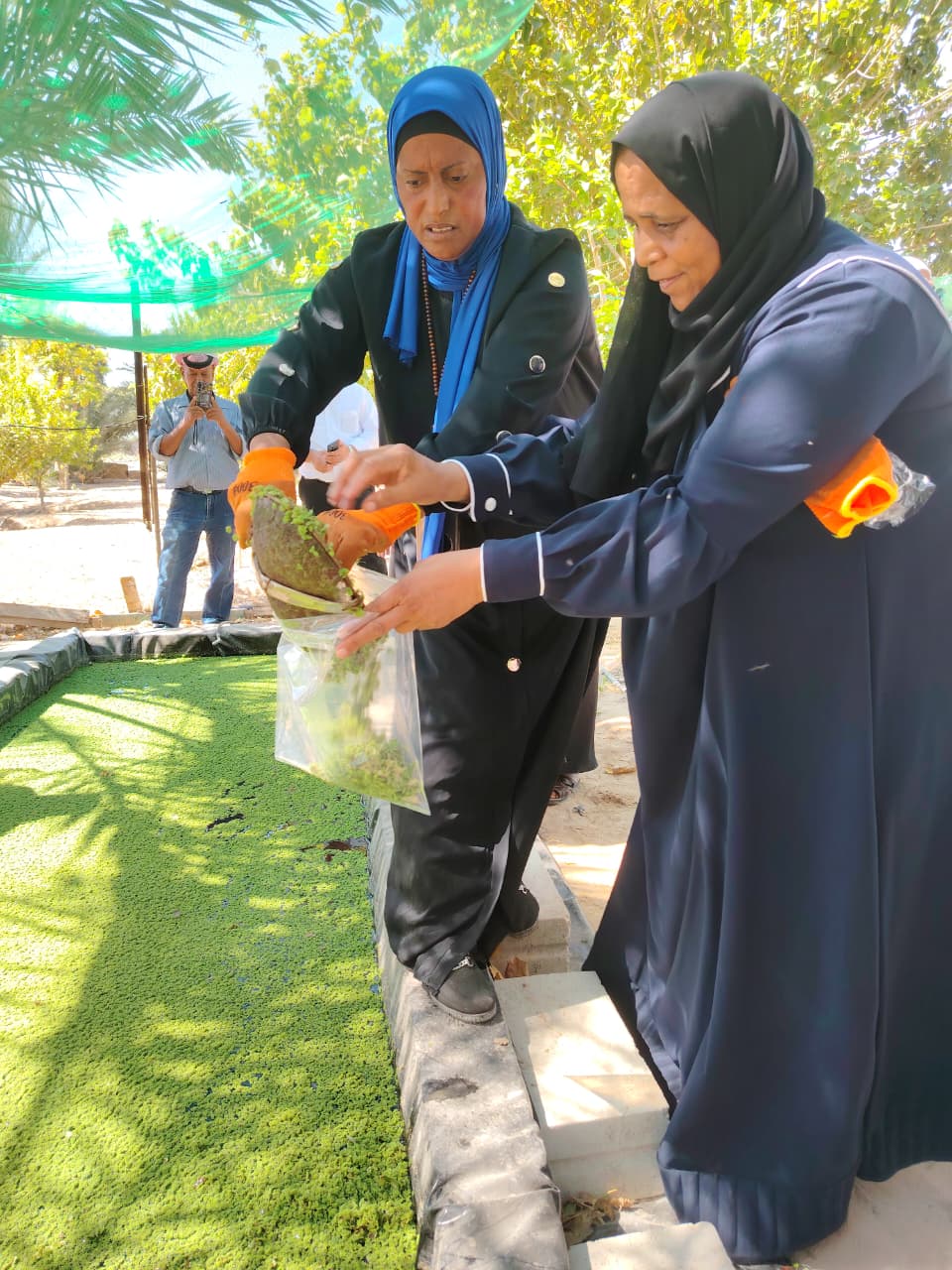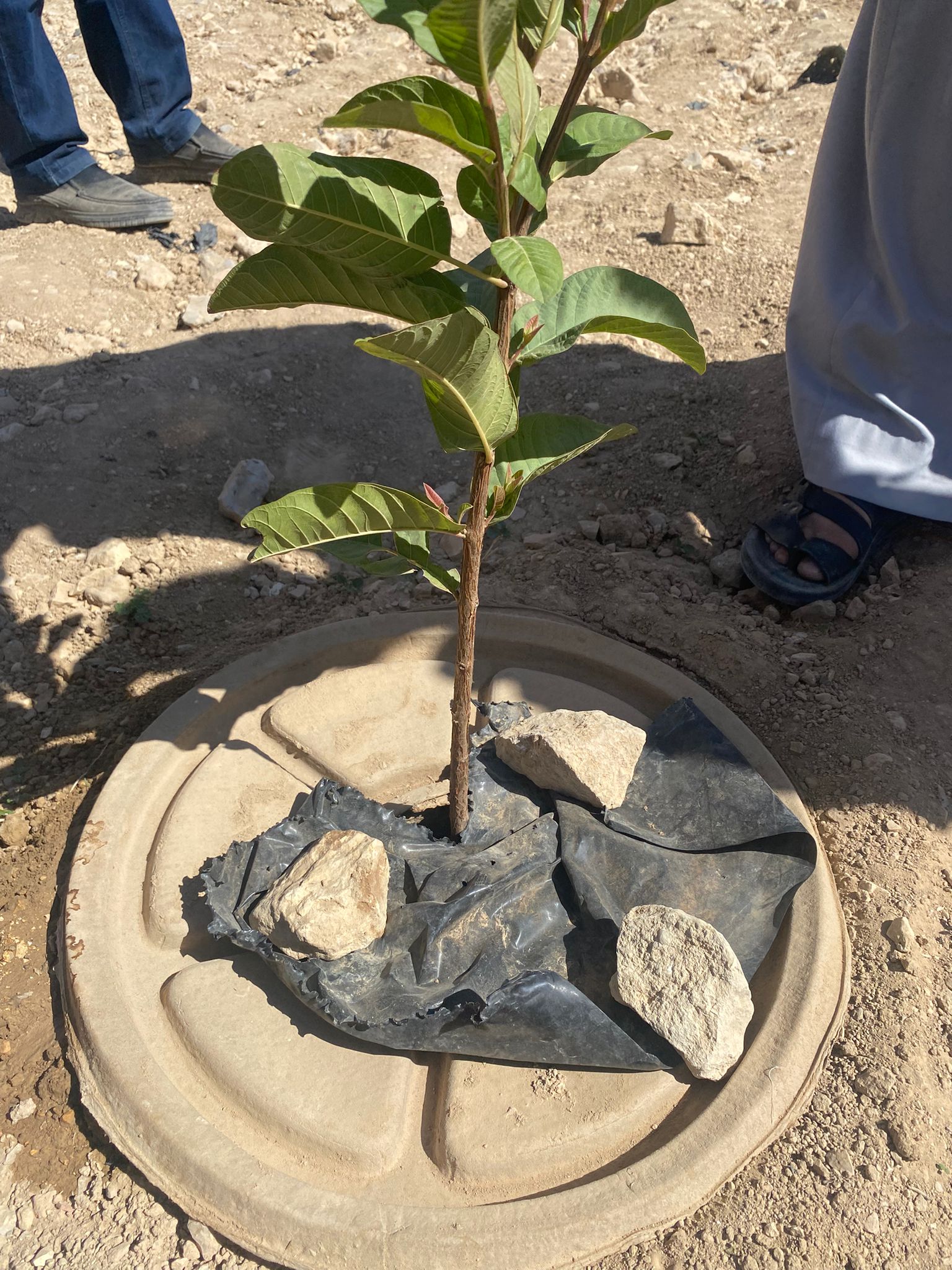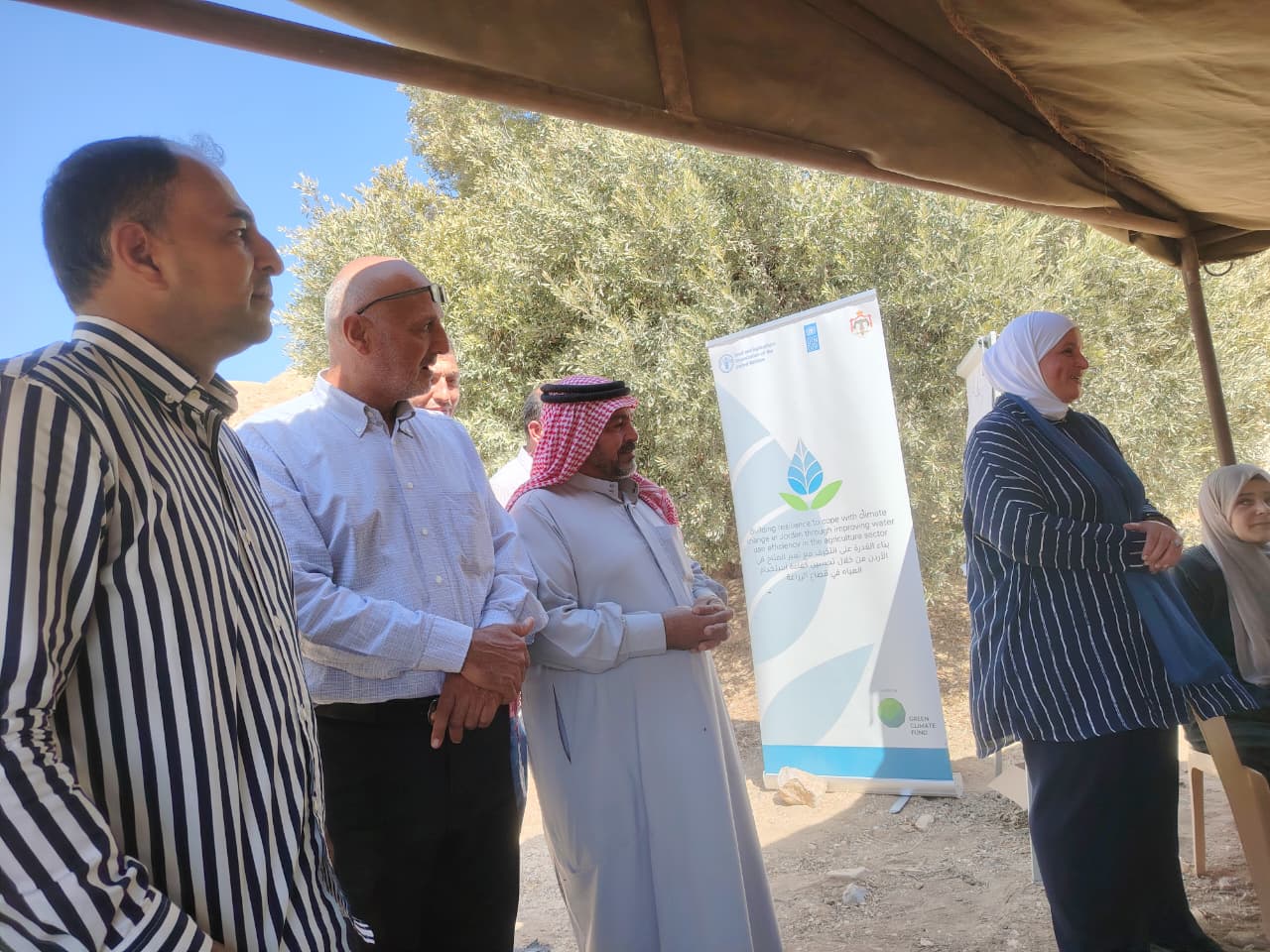
Al-Habees Dam: A Landmark Step Toward Reviving Agricultural Lands
Field Schools in Southern Jordan: Green Solutions to Climate Change and Water Scarcity
FAO
02/11/2025
Madaba – Karak / Jordan
As climate change challenges in Jordan intensify—from rising temperatures and declining rainfall to worsening water scarcity—agricultural innovation emerges as the first line of defense to ensure sustainable production and improve the livelihoods of farmers in rural communities.
Among the most prominent examples of this approach are 16 field schools implemented by agricultural extension officers from the Ministry of Agriculture under the project “Building Resilience to Climate Change in Jordan through Improving Water Use Efficiency in the Agriculture Sector (BRCCJ)”, carried out by the Food and Agriculture Organization of the United Nations (FAO) in collaboration with the Ministries of Water and Irrigation, Agriculture, and Environment, and the United Nations Development Programme (UNDP), with funding from the Green Climate Fund (GCF). The project covers the Dead Sea Basin governorates of Madaba, Karak, Tafileh, and Ma’an.
These field schools serve as practical learning platforms that allow farmers—both men and women—to test modern agricultural techniques adapted to changing climate conditions, helping them manage water resources more efficiently and achieve sustainable productivity.
Empowering Agricultural Cadres
Under the BRCCJ project, 53 agricultural engineers from Madaba, Karak, Tafileh, and Ma’an completed an intensive 30-day training program over three months last year, qualifying them as trainers and facilitators for climate-smart farmer field schools.
These schools aim to strengthen participants’ skills in transferring agricultural knowledge and applying innovative environmental solutions on the ground, with a strong focus on community participation—especially among rural women.


Farming in Home Gardens: The “Gabion” School in Madaba
In Madaba, particularly in the eastern Ma’mouniyeh area, agricultural engineer Nawal Al-Shawabkeh from the Agricultural Extension Department implemented a home-based field school applying the “gabion” technique—a modern, cost-effective agricultural method that has proven efficient for small gardens and limited spaces.
“The gabion technique has shown remarkable success in promoting plant growth and conserving water,” says Al-Shawabkeh. “It allowed us to double productivity, make use of every square meter, and significantly reduce irrigation water.”
Fifteen women farmers participated in the school, exchanging experiences in growing leafy vegetables and strawberries in small home plots.
One participant, Um Youssef, shared: “The gabion technique transformed small corners of our homes into fruitful green spaces. We now grow parsley, lettuce, and strawberries with minimal water—and even earn a small extra income.”
Reviving the Ancestors’ Orchards: The “Cocoon” School in Karak
In Jouza village, in the Ai district of Karak Governorate, once known for its now-dried springs, agricultural engineer Ramzi Al-Dmour implemented the “Cocoon” technique within the framework of climate-smart field schools.
“The region used to thrive with spring water, but most have dried up in recent years,” says Al-Dmour. “The Cocoon experiment came to rescue old orchards—using a method that conserves water and keeps the soil moist for long periods.”
The school planted 60 trees of lemon and guava, half using the Cocoon technique and half using traditional drip irrigation.
Within just 45 days, results were clear: Cocoon-planted trees consumed only 2.5 cubic meters of water compared to 20 cubic meters with conventional irrigation—an 80% reduction—while showing twice the vegetative growth.
“The Cocoon technique saved over 80% of irrigation water while maintaining healthy trees. It’s a realistic solution to the water shortage threatening agricultural sustainability in our region,” Al-Dmour adds.

Al-Habees Dam: A New Lifeline for Agricultural Lands
As water resources continue to decline in Karak Governorate, the construction of Al-Habees Dam represents a transformative step toward reviving agricultural lands and supporting field schools’ efforts to enhance water and food security.
One farmer participating in the Jouza field school said:
“We need a dam downstream to capture rainwater and runoff, store it to recharge groundwater, and irrigate nearby lands. This would allow us to reclaim areas abandoned for years due to drought.”
He adds: “Building Al-Habees Dam won’t just provide water—it will bring life back to the land. Combined with the modern techniques we’ve learned in the field schools, we can conserve water and boost production.”
From Fodder to Sustainability: The “Azolla” School in the Southern Jordan Valley
In Ghor Al-Safi, agricultural engineers Aden Al-Muradat and Ghaleb Khraisat from the Southern Jordan Valley Agriculture Directorate implemented a field school on Azolla cultivation—a protein-rich aquatic plant used as natural poultry feed that also reduces evaporation by providing surface cover.
“We chose Azolla because it offers a natural alternative to costly fodder while promoting water conservation,” says Al-Muradat. “Many farms in the region practice fish farming, which created an ideal environment for Azolla cultivation. This integration between aquaculture and agriculture forms a closed ecological system that minimizes waste and enhances sustainability—a model to be replicated in arid areas.”
Field Schools: Laboratories for Knowledge and Change
From Ma’mouniyeh to Jouza to Ghor Al-Safi, these field schools represent more than just training initiatives—they are platforms for participatory learning, where farmers become partners in developing solutions, not just recipients of information.
As Jordan continues its efforts to confront the impacts of climate change, these experiences stand as living proof that investing in agricultural knowledge is the path toward a greener, more sustainable future.
